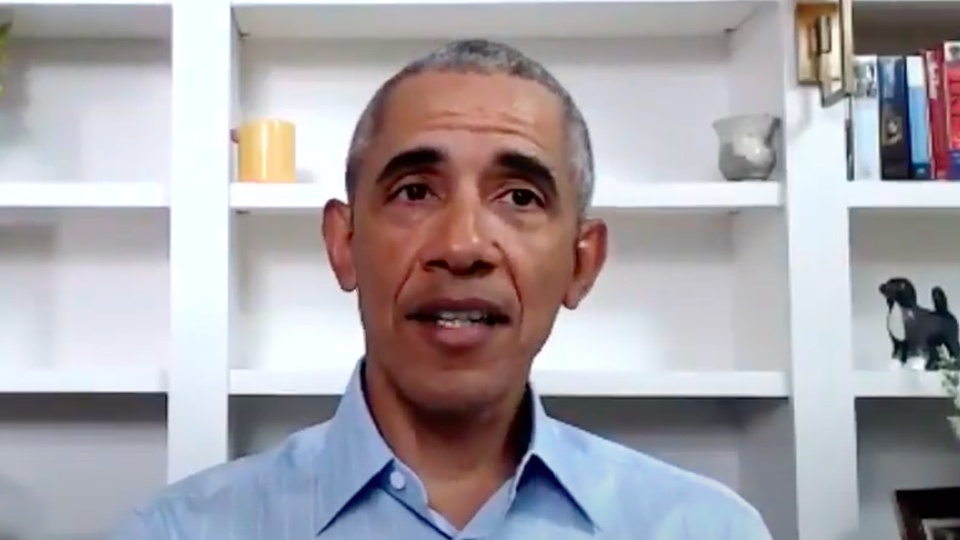During a livestreamed town hall event on YouTube, former President Barack Obama spoke eloquently about the state of the country and what can be done moving forward to address police brutality.
Obama shared his initial thoughts on George Floyd's death and protests against police brutality and racism in a Medium blog post last week.
But during the event, he touched on how inspiring it is to see young Black people taking concrete steps to address the systems that led to Floyd's tragic killing.
"To those families who've been directly affected by tragedy, please know that Michelle and I and the nation grieve with you, hold you in our prayers. … I hope that you also feel hopeful even as you may feel angry because you have the power to make things better and you have helped to make the entire country feel as if this is something that's got to change," Obama said.
"You've communicated a sense of urgency that is as powerful and transformative as anything that I've seen in recent years," he added.
He spoke at length about how the disastrous effect of the coronavirus pandemic on Black communities exacerbated longstanding issues related to health care and the economy. All of these issues have now dovetailed with police brutality issues, which have continued unabated.
"They're the result of a long history of slavery, Jim Crow, redlining and institutionalized racism that too often have been the plague, the original sin, of our society," the 44th U.S. president said.
He noted that the global nature of the protests and diversity of protesters made him hopeful. The Hawaii native also highlighted that comparisons to protests of the 1950s and 60s were not apt because of how many people of all races and genders are now coming out to stand against police brutality.
Obama also took the time to remind younger viewers that many of the country's most powerful social movements, like the Civil Rights Movement, the feminist movement and others, were led by young people.
In addition to his commentary about the protest, Obama also discussed how protesters can translate their movement into actionable changes that can be made to policing, noting that most changes need to be made at the local level by mayors and police chiefs across the country.
He urged the country's mayors to take his "commitment to action" pledge, which provides local leaders with concrete things that can be done to make policing safer for officers and citizens.
After the killing of Michael Brown, Obama said he worked to create a framework for mayors to follow that would provide guidelines for things that could be realistically changed. The pledge includes a commitment that mayors can make to reviewing police use-of-force policies, engaging communities in the policymaking process and reforming those policies.
More specifically, Obama asked mayors, activists and local lawmakers to look at the website he created laying out eight things leaders can do to change how policing is done. The Police Use Of Force Project website has dozens of suggestions ranging from requiring officers to de-escalate situations to banning officers from choking or strangling civilians.
The list also includes requiring officers to intervene and stop excessive force used by other officers and to report these incidents immediately to a supervisor and restricting officers from shooting at moving vehicles. Project organizers call for police departments "to develop a Force Continuum that limits the types of force and/or weapons that can be used to respond to specific types of resistance."
The project suggests for police departments to require officers to exhaust all other reasonable means before resorting to deadly force and to require officers to give a verbal warning, when possible, before shooting at a civilian.
Obama noted dozens of the mayors of America's biggest cities like New York City, Chicago and Atlanta, have already committed to the effort, and he thanked young people for pushing the conversation.
"I want to speak directly to the young men and women of color in this country. … I want you to know that you matter. I want you to know that your lives matter. That your dreams matter," Obama said.
"When I go home and I looked at the faces of my daughters, Sasha and Malia, and I look at my nephews and nieces, I see limitless potential that deserves to flourish and thrive and you should be able to learn and make mistakes and live a life of joy without having to worry about what will happen when you walk to the store or go for a jog or are driving down the street or looking at some birds in a park," he continued.
